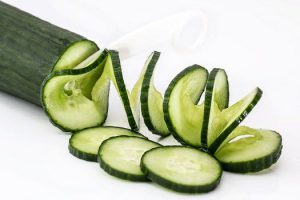General Health Articles
In the News: Myth vs. Fact : Hair Loss
The statistics can be staggering, more than 50 percent of men over the age of 50 are experiencing some form of hair loss, making the hair loss industry worth more than 3.5 billion dollars.
And while many of the creams or treatments that are currently out there for hair loss that don't work, it is hard to determine what is a fact and what is a myth when it comes to hair loss.

MYTH: Hair restoration never looks natural. There are plenty of great hair restoration techniques out there, compared to years ago when the hair restoration process was more noticeable than present day.
MYTH: Baldness comes from your Mother's side. Your “hair future” is actually determined from both sides of your family and you are more likely to have a mix of your parent's hair genes.
MYTH: Pull out a grey hair and three more will grow in its place. Repeatedly pulling out hairs can cause traction alopecia, where the trauma of plucking hairs can actually scar the hair follicle to the degree where it will no longer produce hair. So pulling them out on a regular basis can actually make your hair go away for good.
FACT: Mistreating your hair can cause hair loss. Overworking your hair can damage your hair, make it weak and break easily. Hair troubles can be caused by aggressive brushing, back combing, dying and straightening. Shampoos and even too much UV exposure can also damage hair.
FACT: Propecia works. The majority of hair loss falls into the category of male-pattern baldness. This inherited condition makes a man's hair follicles stop producing hair in reaction to hormone dihydrotestosterone (DHT). Propecia blocks an enzyme that would otherwise turn testosterone to DHT, although it has to be taken every day and may take up to three months to see any noticeable changes.
Prevention 101: Soothe Your Sunburn
Let's face it, no matter how lathered up you are or how cautious you are this summer, at some point you may slip up and end up with a pretty nasty (and painful) sunburn. Here are some easy ways for you to soothe the painful effects of sunburn:

- Take some aspirin to reduce redness and ease some pain.
- Cortisone creams, if applied within 6 hours of the burn, provide some relief.
- Pure aloe vera gel can help cool down your skin and relieve discomfort.
- Avoid additional sun exposure while your skin heals.
- Chill and blend cucumber slices to create a cucumber paste to apply to your burned skin.
- Apply an ice compress, but not directly to the burned area to help constrict your skin's capillaries.
In the News: Bummer Free Summer
Now that summer is upon us again, it's time to get out and enjoy all that Mother Nature has to offer. But unfortunately, there are plenty of “summer bummers” : those things that we find in nature that try to ruin our good time. Keep these in mind the next time you are outdoors and your summer can be bummer-free!

Poison Ivy, Poison Oak and Sumac: Coming in contact with the sap from a poison ivy, oak or sumac plant can cause a pretty nasty rash. Symptoms start as redness and swelling at the infected site, and then progresses to a strong itching feeling. Over-the-counter medicines will help alleviate the pain and all symptoms should be gone in a week or two.
Mosquito Bites: Mosquitoes may be one of the most annoying bugs around. The blood-suckers bite and can leave some major itching in its aftermath. To protect yourself against these annoying little bugs, wear bug spray when you are outdoors for an extended period of time, use screens in your windows and doors, and don't let water sit stagnant in your yard, as this becomes a breeding ground for mosquitoes to lay their eggs.
Fireworks Burns: Burns due to handling fireworks is one of the number one reasons why people end up in the emergency room during the summertime. Most injuries involve the hands, arms, eyes and ears, with most of these injuries being burns. Minor burns can be treated at home by running cool water over the burn and then put a cool, dry cloth on them. More severe burns will need to be treated by a doctor.
Heat Rash: Children are most commonly affected by heat rash resulting in small pinkish pimples on the skin. Most of the rashes heal on their own, but to alleviate the symptoms take a cool bath, air dry and avoid using lotions on the affected area.
Sunburn: Prolonged exposure to the sun and its harmful UV rays can cause pain and redness on the skin commonly known as sunburn. Sunburn can happen within hours of sun exposure and can last for weeks depending on the grade of the burn. Over-the-counter pain relievers, cold compresses, aloe or moisturizing creams can all alleviate the pain and stinging associated with sunburn. Burns that are expressed through blisters need to be treated by a medical professional.
Ways to Naturally Heal Sunburn
Now that spring is in full bloom and summer is just around the corner, it's time again to be out enjoying the sun's rays. And while those rays can be quite enjoyable, they can also wreak havoc on your skin and cause a pretty nasty sunburn.

Don't let your sunburn turn into days of pain. Instead try some of those natural ways to fight the pain of sunburn:
- Use vitamin E. While there are plenty of sunburn remedies that you can buy over-the-counter, just look in your cabinet for any lotion that contains vitamin E and aloe vera. The vitamin E and aloe vera add nutrients back into the skin that the UV rays have left unbalanced. The aloe vera also gives the cooling effect that is much needed for that sunburn.
- Check the kitchen cupboard and the refrigerator. Items like vinegar, mustard, yogurt, tomatoes and avocados all contain extra vitamin E and will help to relieve the burn just as any cream or lotion would.
- Try Lavender Essential Oil. When used in conjunction with aloe vera, the oil helps to promote new skin growth and heals first degree burns.
- Opt for green tea. Green tea is perfect for reducing the swelling of the skin associated with sunburns, as well as taking out the sting of the burn. To make the green tea compress, bring a pot of tea to boil then pour it over 1 teaspoon of loose green tea. Cover and let it sit for 5 minutes and then mix with an equal amount of cold water. Once the mixture is cooled, soak a clean cloth in it and put it on the sunburned skin for five to ten minutes. This can be applied several times a day.
- Cool down. Take a cool bath with 1 cup of black tea and 1 cup of apple cider vinegar to the bath water. The black tea helps to reduce the swelling and the apple cider vinegar helps to soothe the pain.
Whatever natural method you decide to go with to treat your next sunburn, be sure to treat the burn right away. Prolonging the treatment of the burn will only prolong the agony of the pain, so take care of your burn on day one.
Benefits of Massage Therapy
For more than 120 years, experts have been researching the benefits of massage therapy, and besides the obvious stress-free feeling that people have following a massage, there are plenty of other benefits to this ancient healing procedure.

One major benefit of massage therapy that researchers have found is that people who get massages on a regular basis have noticed a decrease in their blood pressure.
Massages also help to alleviate the pain of those who suffer from migraine headaches.
Massage can also: reduce your heart rate, increase blood circulation and lymph flow, relax your muscles, improve your range of motion, and increase endorphins.
Research has also shown that while massage therapy does not increase your muscle strength, it can stimulate your weak and inactive muscles and can thereby aid muscles that you may not have worked out in quite some time.
Massage therapy can also speed up your recovery process if you do have an injury.
Some other physical benefits of massage therapy include: relieving muscle tension and stiffness, alleviating discomfort during pregnancy, reducing
muscle spasms, promoting deeper and easier breathing, enhancing the health and nourishment of your skin, and improving your posture.
Massage therapy, while a physical act, is not all about physical benefits. There are plenty of mental benefits that having a massage can give you.
Some of these mental benefits include: promoting mental alertness, relieving mental stress, reducing levels of anxiety, improving motor skills, creating body awareness, and fostering a feeling of well being.

